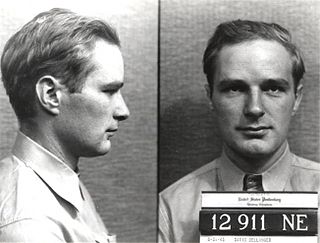A Quote by David Dellinger
If the U.S. has its Vietnam... the Soviet Union has its Czechoslovakia. If the U.S. has its blacks and chicanos, then the Soviets have their Jews.
Quote Topics
Related Quotes
The first year I was in office, only about 800 people came out of the Soviet Union, Jews. By the third year I was in office... second year, 1979, 51,000 came out of the Soviet Union. And every one of the human rights heroes - I'll use the word - who have come out of the Soviet Union, have said it was a turning point in their lives, and not only in the Soviet Union but also in places like Czechoslovakia and Hungary and Poland [they] saw this human rights policy of mine as being a great boost to the present democracy and freedom that they enjoy.
This much I would say: Socialism has failed all over the world. In the eighties, I would hear every day that there is no inflation in the Soviet Union, there is no poverty in the Soviet Union, there is no unemployment in the Soviet Union. And now we find that, due to Socialism, there is no Soviet Union!
Back in 1956, we signed a treaty and surprisingly it was ratified both by the Supreme Soviet of the Soviet Union and the Japanese Parliament. But then Japan refused to implement it and after that the Soviet Union also, so to say, nullified all the agreements reached within the framework of the treaty.
My mother was really involved with the Refusenik campaign with Soviet Union Jews. They would come and stay at our house, some of them, after they managed to get out of the Soviet Union at the time. There were things that were Jewish-related happening in my house quite consistently, but it was much more from a kind of activist standpoint.
In the late 1980s, Soviets were allowed to keep the wealth they created by raising vegetables on their garden plots. Although these plots composed only about 2% of the agricultural lands in the Soviet Union, they produced 25% of the food! When Soviets kept the wealth they created, they produced almost 16 times more than when it was taken from them at gunpoint, if necessary!
25 million of Russian people suddenly turned out to be outside the borders of the Russian Federation. They used to live in one state; the Soviet Union has traditionally been called Russia, the Soviet Russia, and it was the great Russia. Then the Soviet Union suddenly fell apart, in fact, overnight, and it turned out that in the former Soviet Union republics there were 25 million Russians. They used to live in one country and suddenly found themselves abroad. Can you imagine how many problems came out?
If you are in Brazil and you grew up in a right-wing dictatorship, you think Marxism is liberating. But if you grew up in Czechoslovakia, and the Soviet Union is controlling everything and killing people, then you think capitalism is liberating. Neither of those two things are true and it doesn't take a lot brains to understand this.
Our problem was that in the American approach to Soviet affairs policy has oscillated between people who take an essentially psychological approach and people who take an essentially theological approach, and the two really meet. The psychologists try to "understand" the Soviet Union. And try to ease its alleged fears. The theologians say the Soviets are evil.






























